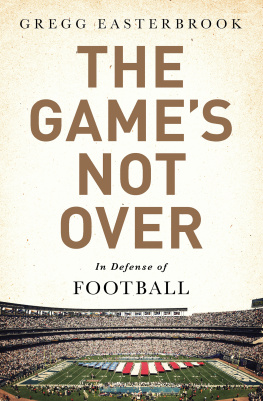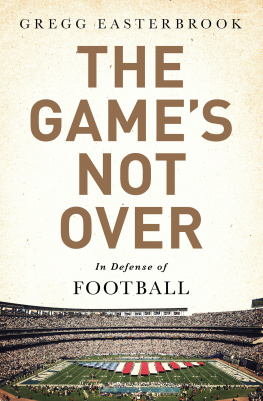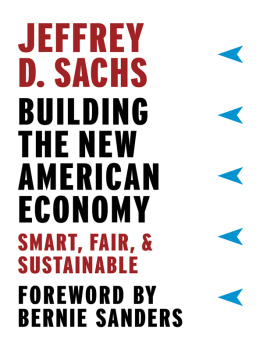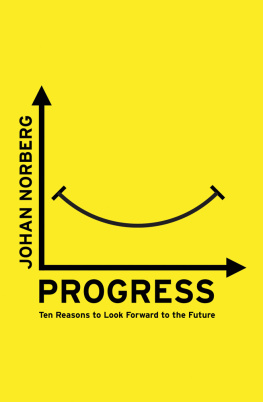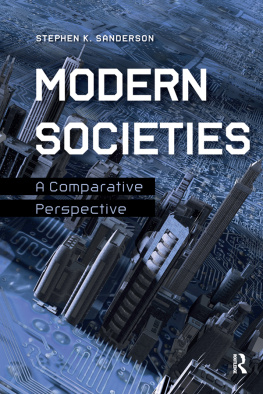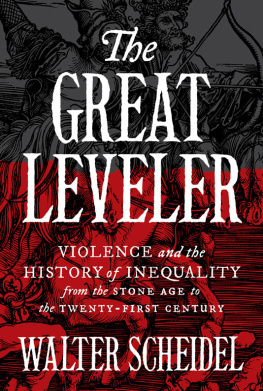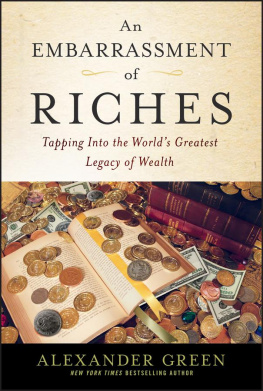Copyright 2018 by Gregg Easterbrook
Hachette Book Group supports the right to free expression and the value of copyright. The purpose of copyright is to encourage writers and artists to produce the creative works that enrich our culture.
The scanning, uploading, and distribution of this book without permission is a theft of the authors intellectual property. If you would like permission to use material from the book (other than for review purposes), please contact permissions@hbgusa.com. Thank you for your support of the authors rights.
PublicAffairs
Hachette Book Group
1290 Avenue of the Americas, New York, NY 10104
www.publicaffairsbooks.com
@Public_Affairs
First Edition: February 2018
Published by PublicAffairs, an imprint of Perseus Books, LLC, a subsidiary of Hachette Book Group, Inc. The PublicAffairs name and logo is a trademark of the Hachette Book Group.
The Hachette Speakers Bureau provides a wide range of authors for speaking events. To find out more, go to www.hachettespeakersbureau.com or call (866) 376-6591.
The publisher is not responsible for websites (or their content) that are not owned by the publisher.
Library of Congress Cataloging-in-Publication Data
Names: Easterbrook, Gregg, author.
Title: Its better than it looks : the case for optimism in an age of fear / Gregg Easterbrook.
Description: First edition. | New York : PublicAffairs, [2018] | Includes bibliographical references and index.Identifiers: LCCN 2017048518| ISBN 9781610397414 (hardcover) | ISBN 9781610397421 (ebook)
Subjects: LCSH: Progress. | Quality of life. | Civilization, Modern21st century. | Economic history. | Social history.
Classification: LCC HM891 .E268 2018 | DDC 306.09dc23
LC record available at https://lccn.loc.gov/2017048518
ISBNs: 978-1-61039-741-4 (hardcover), 978-1-61039-742-1 (ebook)
E3-20180206-JV-PC
For William Whitworth from the Arkansas Gazette to The New Yorker to editor-in-chief of The Atlantic: the consummate editor
The great fact to remember is that the trend of civilization is forever upward.
Franklin Delano Roosevelt, shortly before his 1945 death
Preface:
Optimism Goes Out of Style
O N THE N OVEMBER 2016 DAY Donald Trump was elected president of the United States, unemployment was 4.6 percent, a number that would have caused economists of the 1970s to fall to their knees and kiss the ground. In real-dollar terms, gasoline prices were the same as when teenagers rushed to record stores to buy the latest 45-rpm monaural singles. Natural resources and foodstuffs were plentiful. Middle-class wages and household income were rising. The economy had expanded for eighty-nine consecutive months. Private-sector jobs had grown for eighty consecutive months, nearly doubling the previous record of forty-eight months; a net of eight million jobs had been added in less than a decade. US industrial output was at an all-time record. Inflation had been low for a decade, while mortgage rates and other borrowing costs were at historic lows. Crime, especially homicide, was in long-term decline. All forms of pollution except greenhouse gases were in long-term decline; all forms of discrimination were in long-term decline; most disease rates were in long-term decline. Education levels and longevity were the highest ever. Two-thirds of the globes reserve currency was held in the USD, which meant the rest of the world judged Americas prospects to be excellent. The United States military not only was the strongestit was stronger than all other militaries of the world combined. Objectively, America was in the best condition it had ever been in.
Yet Trump convinced voters that our country is going to hell. Despite the industrial output record, Trump convinced voters that we dont make things anymore. Despite the glittering numbers, Trump convinced voters that the economy is always bad, down, down, down. Despite the urban comebacks of Boston, Chicago, Cleveland, Denver, Philadelphia, Pittsburgh, and Washington, DC, Trump convinced voters that American cities have no education, they have no jobs. Despite the United States being viewed by other nations as the eight-hundred-pound gorilla, Trump convinced voters that in Americas interactions with the world, were losing all the time, we lose with everything. Addressing a rally in Colorado a few days before the election, Trump told voters they were living through the lowest point in the history of our country.
In the aftermath of the 2016 presidential election, there was a scramble to attach culpability to the pollsters, the pundits, the Russians, the FBI, WikiLeaks, sexism, and Hillary Clintons egregious campaign. What mattered is that when Trump told voters things were awful, they believed him.
Trump hardly was alone in being all negative all the time. In the same year, Bernie Sanders came out of left field and nearly upset heavily favored insider Hillary Clinton for the nomination of the Democratic Party via a campaign that relentlessly described contemporary America as foundering on the rocks. The United States, Sanders contended, has been destroyed except for the wealthiest few. Sanderss backers shouted approval at his flamboyantly downbeat assertions, some every bit as kooky as any by Trump. Sanders proclaimed that Americans are being poisoned by pollutants caused by corporate greed. If our bodies are being poisoned, living longer is a funny way of showing it.
Believing things much worse than they are hardly was confined to the United States. Objectively, in 2016, the United Kingdom was in the best condition it has ever been injudged by strong economic growth, by the lowest unemployment rate of any European Union member, by high levels of personal freedom and public health, by inflation-adjusted per capita income, by almost any other leading indicator. During current generations, no Britons have died in great-power European wars, versus the two million dead and five million severely wounded in European wars among recent prior generations. Yet, in 2016, British voters angrily demanded separation from the European Union, seeming to believe their tranquil, prosperous polity was down, down, down.
The feelings of irate voters are not just some lapse. Voters in the United States and Europe have been barraged with rapid-fire reports of bad news, causing a deep sense that todays society has broken yesterdays promises. It is easy to feel this way, but feeling this way also is a choice. Too often we try to force the world to match our feelings, when wed be on a more even keeland experience life more fullyif instead our feelings matched the world.
There are four basic types of knowing. One is certainty: we can be certain the sun is ninety-three million miles from Earth. Another is faith or doubt: we can neither prove nor disprove beliefs about God. A third is opinion: theres no right or wrong on questions such as which beer tastes best or whether baseball should have the designated hitter rule.
Then there is what we want to believe. What we want to believe can upend any degree of evidence, provability, or subjectivity. Trump, Sanders, and the Brexit movement struck a chord because people wanted to believe the worst about society. They wanted to believe the worst though the United States at the time was in the best condition it had ever been in, the same could be said of the United Kingdom, and the world overall had never been better.
Of course there are many individuals and families experiencing personal, physical, or financial hardship: there never will be a moment when no one is sick, distressed, or brokenhearted. On the whole, though, at no juncture in American history were people better off than they were in 2016: living standards, per-capita income, buying power, health, safety, liberty, and longevity were at their highest, while women, minorities, and gays were free in ways theyd never been before. There had been no juncture in history at which the typical member of the global population was better off either.


